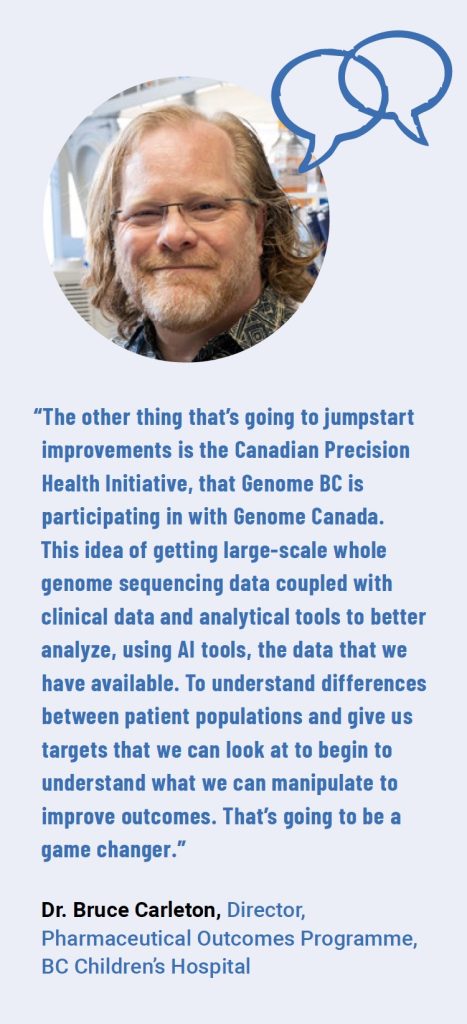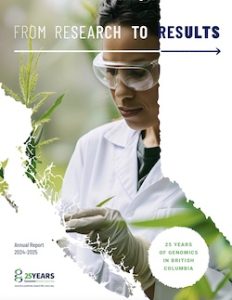October 23, 2025

Led by Dr. Bruce Carleton, the GO-PGx project established a national precision medicine network with a single goal: to help children with cancer not only survive but also thrive. By integrating pharmacogenomic testing into routine care, the project enabled clinicians to tailor drug therapies to a child’s genetic profile, improving outcomes and reducing harmful side effects.
GO-PGx also identified 26 new genetic variants linked to severe drug reactions and established one of the world’s largest pediatric pharmacogenomic databases. Its legacy is transforming care across pediatric medicine.
The impact has been significant. When the project began, fewer than 10% of all pediatric cancer patients in Canada were being tested. By its final year, 60% of all pediatric cancer patients in Canada were receiving pharmacogenomic testing to help guide their care.
A real-world example of how this testing is used to guide treatment comes from a 12-year-old boy with a central nervous system tumour. After undergoing chemotherapy, a stem cell
transplant and radiation, his cancer sadly relapsed. With few treatment options left, pharmacogenomic testing revealed he carried a genetic variant that protected his heart from damage caused by anthracycline chemotherapy. For patients like this, there are few options. Testing gave his doctors the confidence to proceed with a high-dose treatment.
This article appears in Genome BC’s 2024/25 Annual Report. View the whole report here.






